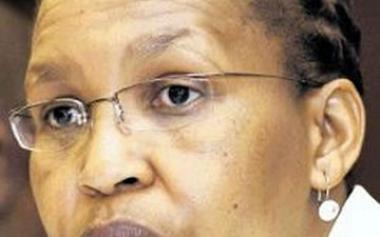Gauteng Govt draft Infrastructure delivery Plan
 MEC Qedani Mahlangu proposes energy innovation ranged from using cities’ solid waste sites to make ‘bio-coal’ for use with current coal-fuelled power stations, localise wind turbines and solar panels that generate electricity on site for everyday use
MEC Qedani Mahlangu proposes energy innovation ranged from using cities’ solid waste sites to make ‘bio-coal’ for use with current coal-fuelled power stations, localise wind turbines and solar panels that generate electricity on site for everyday use
Gauteng’s Infrastructure Development MEC Qedani Mahlangu proposes energy innovation ranged from using cities’ solid waste sites to make ‘bio-coal’ for use with current coal-fuelled power stations, localise wind turbines and solar panels that generate electricity on site for everyday use.
Gauteng’s development blue-print for the next 40 years, the Gauteng Integrated Infrastructure Master Plan, is set to take shape over the coming months, says Infrastructure Development MEC Qedani Mahlangu.
The MEC said this following the staging of the Infrastructure Master Plan Workshop in Sandton.
The visioning and consultative workshop brought together local and international academics, researchers, as well as industry experts from fields, including demography, economics, ICT, energy, water and the environment.
Inputs included projections by demographers and actuaries on current and future population trends of South Africa’s most populous province, as well as innovations in urban planning, water use, public transportation and renewable energy.
“Gauteng has the potential to be a smart province in which to live, work and play. We have the responsibility to make sure we achieve that. If we do this master plan very well, it will be there long after we are gone,” said Mahlangu.
Proposals in the area of energy innovation ranged from using cities’ solid waste sites to make ‘bio-coal’ for use with current coal-fuelled power stations, to localised wind turbines and solar panels that would generate electricity on site for everyday use by households.
“We must work vigorously to ensure that we drive the green agenda. Gauteng needs energy security and we must make sure that we work hard to attain it.
“We are aware of our constraints around water resources. It is crucial that we respond decisively to these if we are to continue to be South Africa’s economic hub,” said Mahlangu.
The workshop also heard a plethora of ideas around water management and use. These included proposals for large scale harvesting, storage and use of rain water, treatment and use of acid mine drainage water, as well as the integration of water into future urban planning.
Mahlangu was particularly pleased with the quality of presentations and discussions among the experts.
The discussions will now be distilled to frame the terms of reference for the authors of the province’s Infrastructure Master Plan, who will be appointed soon.
Once completed, the Gauteng Integrated Infrastructure Master Plan will be adopted and gazetted to ensure that it guides development plans of the entire provincial government as well as municipalities.













